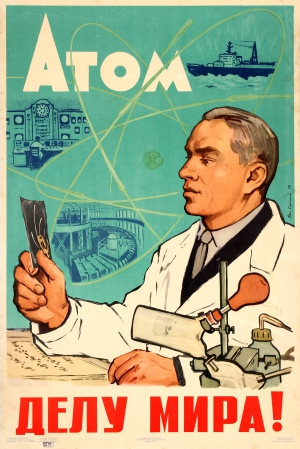Russian President Vladimir Putin and Egyptian President Abdel Fattah el-Sisi signed a preliminary agreement to jointly build Egypt’s first nuclear power plant, after the two leaders met in Cairo on February 9-10, 2015. This announcement comes after multiple reports last November (2014) about Russia’s state nuclear power company Rosatom’s agreement to help Iran build several nuclear reactors, including reactors at Iran’s Russian-built Bushehr nuclear power plant.
Putin had travelled to Cairo this week upon Sisi’s invitation. Russian-Egyptian relations began improving after the July 2013 military ouster of former president Mohamed Morsi, when U.S.-Egyptian relations began to decline. Cairo grew increasingly concerned with what it perceived to be U.S. engagement with the Muslim Brotherhood, and felt abandoned in its fight against terrorists, particularly in the restless Sinai—a hotbed of radicalism and instability going back to President Hosni Mubarak’s time. Washington also delayed weapons deliveries to Egypt, withheld military aid, and later halted the nascent bilateral strategic dialogue. The decline of U.S.-Egyptian relations created an opportunity for Putin to step in and assert his national interests in Egypt.
Putin and Sisi see eye to eye on a number of issues. Putin would certainly prefer to see a secular government in Egypt. Unlike President Obama, Putin enthusiastically endorsed Sisi’s bid for Egyptian presidency. Russia’s Supreme Court has designated the Muslim Brotherhood a terrorist organization in February 2003. Russia continues to battle an increasingly-radicalized insurgency in the Caucasus and the Kremlin has long believed the Brotherhood helped arm radical Islamists in Russia. Putin certainly won’t criticize Sisi on his democratic backslide.
Economic relations have significantly improved between Egypt and Russia in recent years….Putin’s trip to Cairo created a political opportunity for him to show to the West, in light of his aggression in Ukraine, that he is not isolated, no matter what the West says…
Cairo used to be Washington’s partner on energy cooperation. This is no longer the case.In February 2006, the George W. Bush administration announced the Global Nuclear Energy Partnership (GNEP). It aimed to create an international partnership, which would advance safe and extensive global expansion of nuclear power through so-called “cradle-to-grave fuel services” within a regulated market for enriched uranium, where several large countries would provide enriched uranium to smaller countries. This plan aimed to address crucial concerns about nuclear weapons proliferation and waste management, and to eliminate the need for smaller countries to build facilities for uranium processing and disposal in the first place, saving them billions. Egypt was among participant countries in GNEP. President Obama, however, effectively scrapped parts of GNEP and now shows little interest in expanding the strategic energy partnership with Egypt. Putin is only too happy to fill the gap, and is not concerned with the safeguards inherent to GNEP.
Excerpt from Anna Borshchevskaya, Russia-Egypt Nuclear Power Plant Deal: Why Ignoring Egypt’s Needs Is Bad For The U.S., Forbes, Feb. 13, 2015

